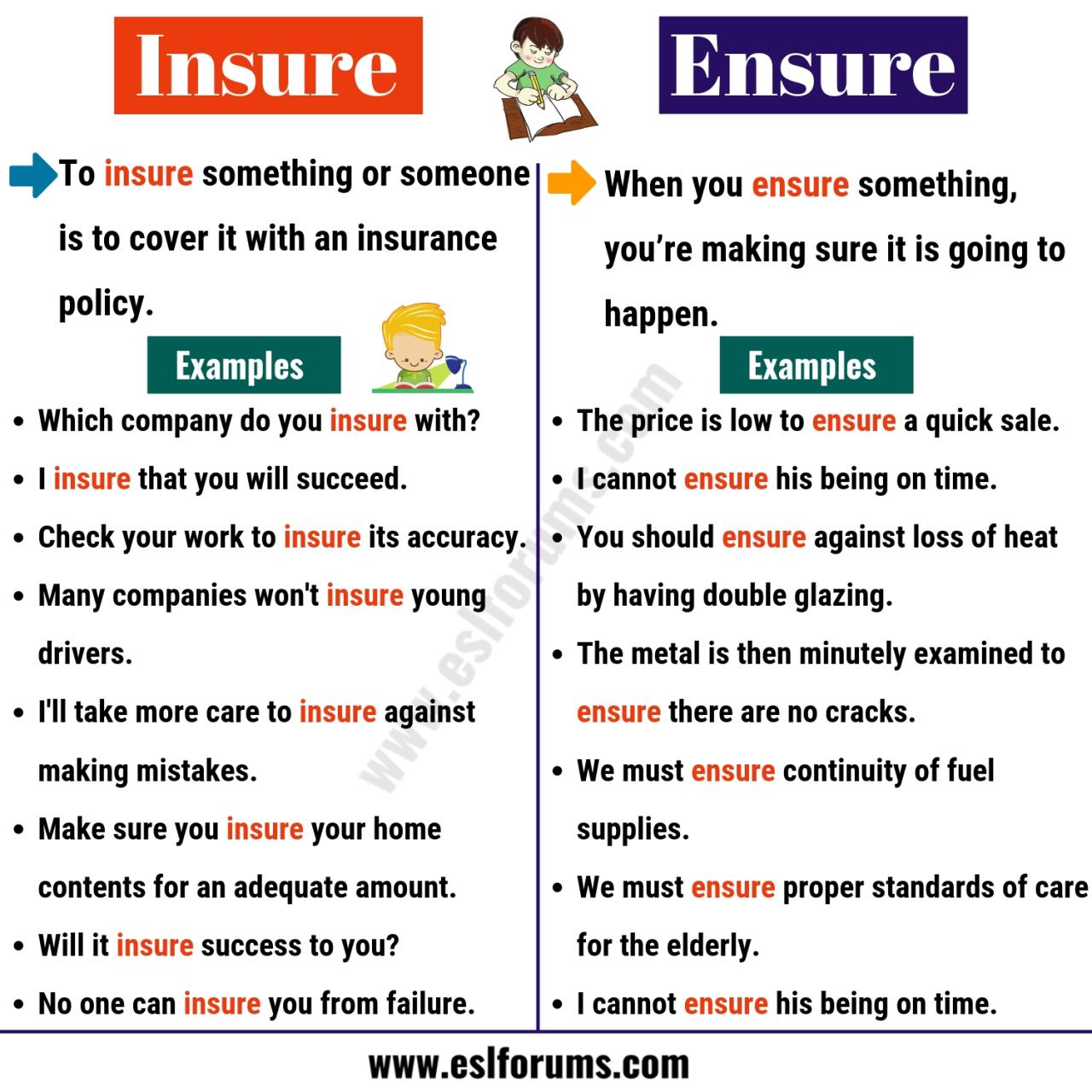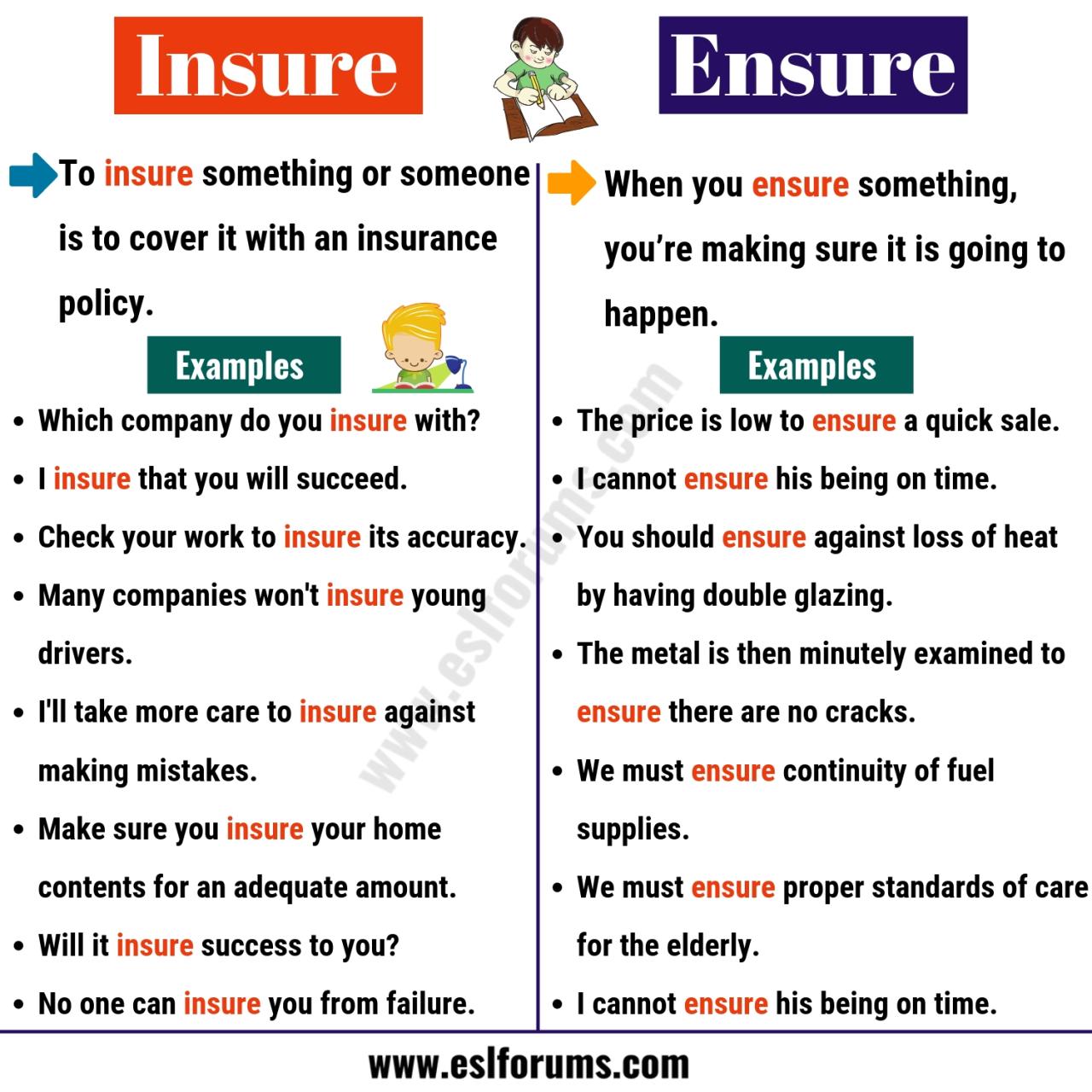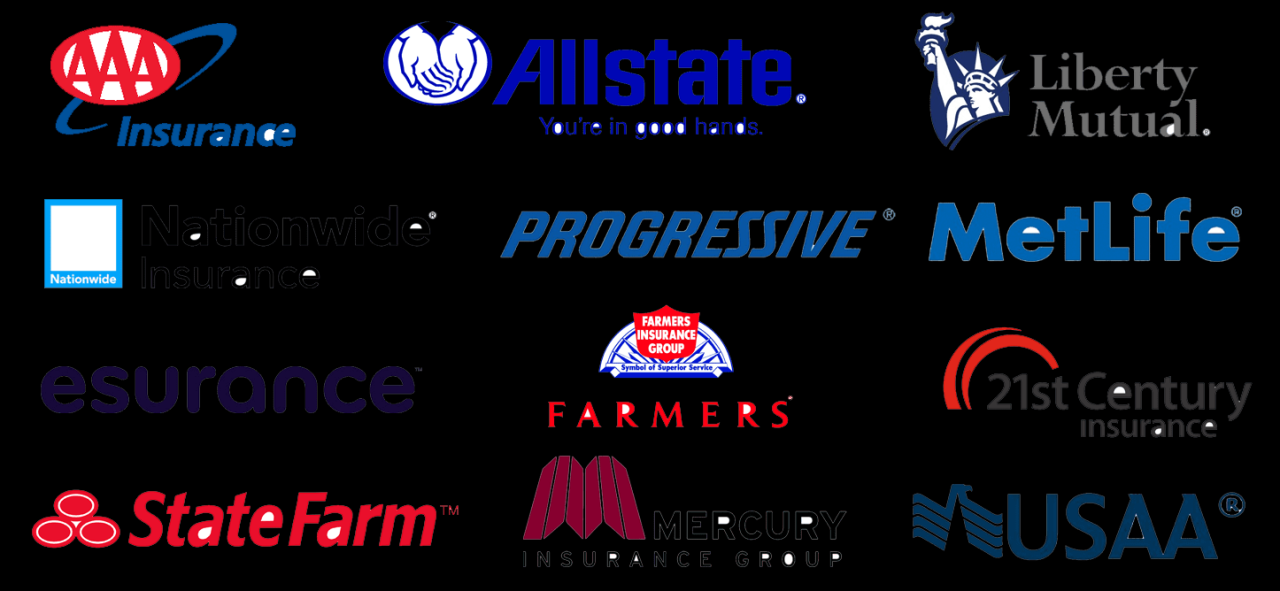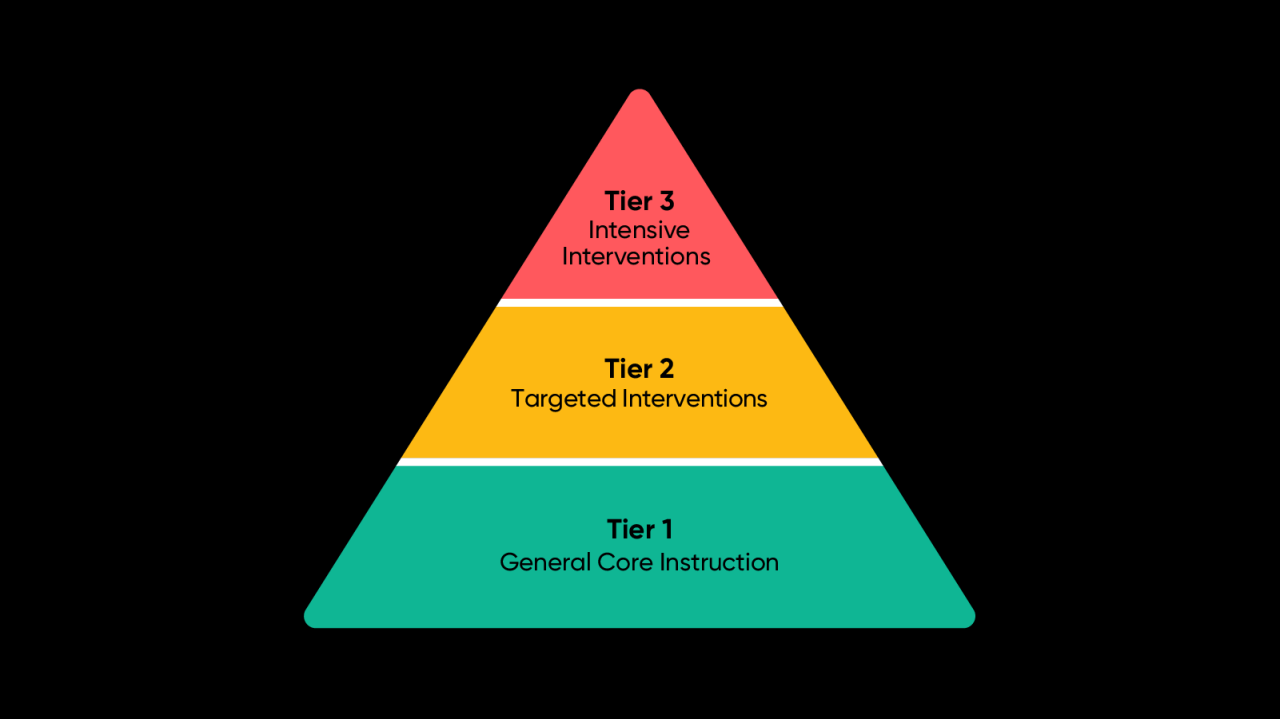Ensure vs insure: two words that sound similar but have distinct meanings. Often used interchangeably, they can lead to confusion, especially when it comes to writing and speaking formally. This article delves into the core meaning of each word, highlighting their differences and offering practical examples to ensure you use them correctly.
We’ll explore how “ensure” relates to making something certain, while “insure” focuses on protection against risk. Through clear explanations, examples, and even a touch of history, we’ll demystify the difference between these commonly misused words.
Understanding the Core Meaning

When you “ensure” something, you’re making it certain or guaranteeing that it will happen. It’s about taking steps to make sure something is definitely going to occur. Think of it as creating a strong foundation for a successful outcome.
Common Scenario
Imagine you’re planning a trip. You “ensure” a smooth journey by booking flights in advance, packing necessary items, and confirming your accommodation. By taking these steps, you’re increasing the likelihood of a successful trip.
Synonyms
- Guarantee
- Secure
- Guarantee
- Make certain
“Ensure” vs. “Make Sure”
“Ensure” and “make sure” are often used interchangeably, but there’s a subtle difference. “Ensure” implies a more formal and proactive approach, while “make sure” is more casual and can be used in everyday situations.
Delving into “Insure”
“Insure” is all about protecting yourself from potential risks or losses. It’s like having a safety net in place to minimize the impact of unexpected events.
Common Situations
- Health insurance:Protecting yourself against high medical expenses in case of illness or injury.
- Car insurance:Covering the cost of repairs or medical bills in case of an accident.
- Home insurance:Protecting your property from damage caused by fire, theft, or natural disasters.
Types of Insurance
Insurance comes in many forms, each designed to address specific risks. Some common types include:
- Life insurance
- Disability insurance
- Travel insurance
- Pet insurance
“Insure” and “Guarantee”, Ensure vs insure
“Insure” and “guarantee” are closely related, but not identical. “Insure” involves mitigating risk, while “guarantee” promises a specific outcome. For example, you can “insure” your home against fire damage, but you can’t “guarantee” that it will never catch fire.
Contrasting “Ensure” and “Insure”: Ensure Vs Insure
While “ensure” focuses on making something happen, “insure” focuses on protecting against potential losses. Let’s look at a simple sentence:
“I will ensure that the project is completed on time, and I will insure my equipment against damage.”
In this example, “ensure” refers to taking steps to guarantee project completion, while “insure” refers to protecting the equipment from potential damage.
Key Distinctions
The main difference between “ensure” and “insure” lies in their focus: “ensure” is about certainty and action, while “insure” is about protection and risk mitigation.
Table of Differences
| Word | Meaning | Example |
|---|---|---|
| Ensure | To make something certain or guarantee it will happen. | “I will ensure that all the necessary documents are submitted on time.” |
| Insure | To protect oneself against financial loss or risk. | “I will insure my car against accidents and theft.” |
Scenario Example
Imagine you’re organizing a conference. You would “ensure” the smooth running of the event by booking the venue, arranging speakers, and managing logistics. You might also “insure” the event against cancellations or unforeseen circumstances, such as a natural disaster.
Practical Application
Sentence Examples
- “We need to ensure that all employees are trained on the new safety procedures.” (Ensure – taking action to guarantee something)
- “It’s wise to insure your home against fire and flood damage.” (Insure – protecting against potential losses)
- “The company will ensure timely delivery of the goods.” (Ensure – proactive action)
- “The policy insures the customer against financial loss in case of a car accident.” (Insure – protection against risk)
Business Context
A business might “ensure” customer satisfaction by providing excellent service and addressing complaints promptly. They might also “insure” their business against potential risks, such as cyberattacks or product liability claims.
Personal Context
Person A:“I’m thinking of getting life insurance. What do you think?” Person B:“It’s a good idea, especially if you have dependents. Life insurance can help provide for them financially if something happens to you.”
Legal Document
“The parties hereby agree to ensure the timely completion of the project, and to insure the equipment against damage during the construction phase.” (Ensure – guarantee completion, Insure – protection against damage)
Finding the right car insurance can be a bit of a headache, but luckily, there are car insurance agents who can help you navigate the process. They can help you compare different policies, understand your coverage options, and find the best deal for your needs.
So, if you’re feeling overwhelmed by the world of car insurance, don’t hesitate to reach out to a professional for guidance.
Additional Considerations
Pronunciation Confusion
The similar pronunciation of “ensure” and “insure” can lead to confusion. However, remembering that “ensure” focuses on action and “insure” focuses on protection can help distinguish between the two.
Finding the right car insurance can be a real headache, but thankfully, there are professionals who can help! Car insurance agents can guide you through the process, comparing different policies and finding the best coverage for your needs and budget.
They can also answer any questions you have about insurance and help you understand the terms and conditions of your policy.
Tips for Remembering
- Think of “ensure” as “making sure” something happens.
- Think of “insure” as “protecting yourself” from risk.
Common Errors
A common error is using “insure” when “ensure” is more appropriate. For example, saying “I will insure that the project is completed on time” is incorrect. The correct usage would be “I will ensure that the project is completed on time.”
Historical Evolution
“Ensure” and “insure” both have roots in the Old French word “asseurer,” meaning “to make safe.” Over time, their meanings diverged, with “ensure” focusing on certainty and “insure” focusing on protection.
Ending Remarks
Understanding the nuances between “ensure” and “insure” can significantly enhance your writing and communication skills. By mastering the distinction between these words, you can express yourself with greater clarity and precision. Remember, ensuring you use the right word can make all the difference in conveying your intended meaning.













